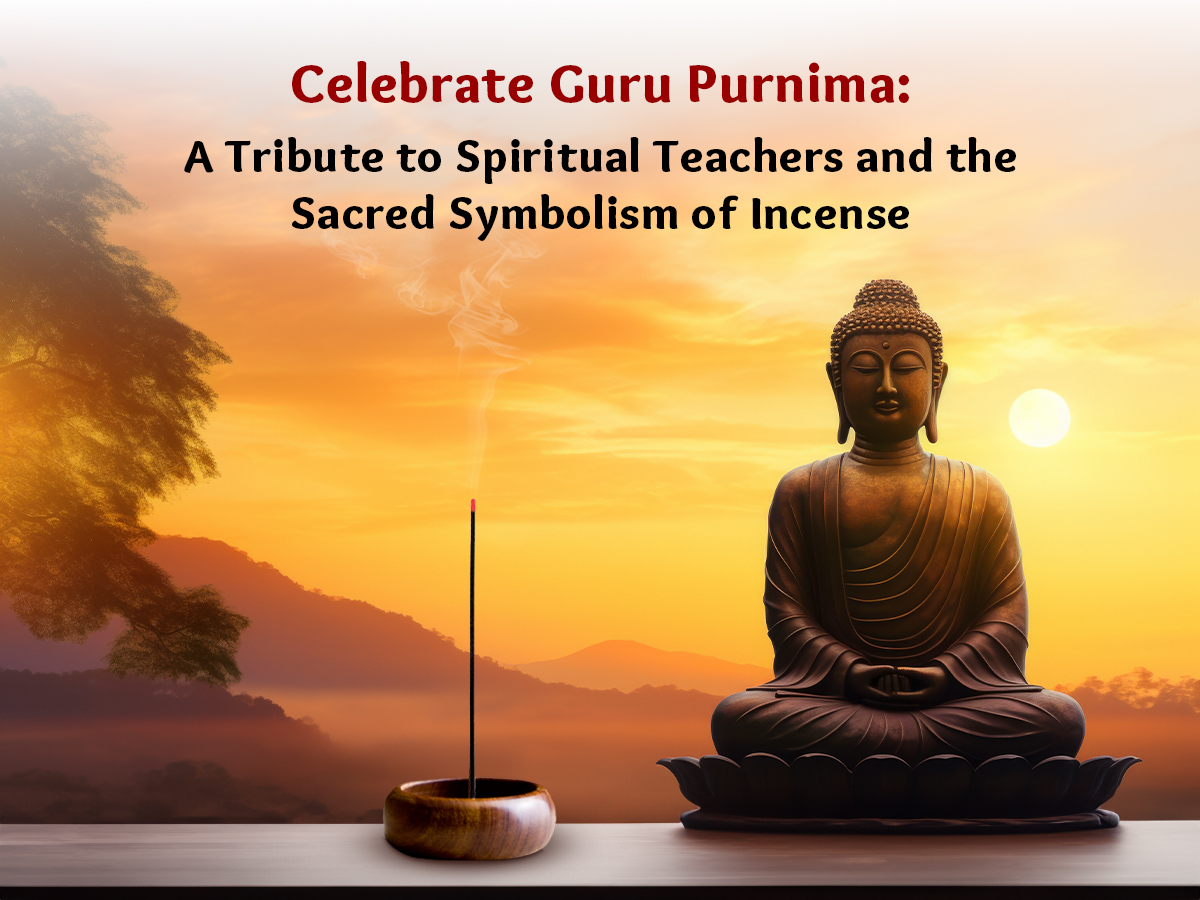Celebrate Guru Purnima: A Tribute to Spiritual Teachers and the Sacred Symbolism of Incense

As the sun rises on the auspicious day of Guru Purnima, a palpable sense of reverence and gratitude fills the air. This sacred festival, celebrated primarily in India, is a time to honor the spiritual guides and teachers who have dedicated their lives to the enlightenment and betterment of humanity. For those who embrace the ancient wisdom and practice of using incense, Guru Purnima holds a particularly profound significance.
The Origins and Significance of Guru Purnima
Guru Purnima, also known as Vyasa Purnima, is a celebration that traces its roots back to the Hindu tradition. It is observed on the full moon day (purnima) in the month of Ashadha,celebrated on 21st July, 2024. The occasion commemorates the birth of Veda Vyasa, the revered sage who is believed to have compiled the sacred Hindu scriptures, the Vedas.
Vyasa, considered one of the greatest gurus in Indian history, is revered for his immense contributions to the preservation and dissemination of spiritual knowledge. Guru Purnima is a day to express gratitude and reverence not only for Vyasa, but for all the spiritual mentors and teachers who have illuminated the path of enlightenment for their students and followers.
The Incense Connection: Honoring the Guru Through Aromatic Rituals
For those who utilize the ancient art of incense-making and burning, Guru Purnima holds a special significance. Incense has long been an integral part of Hindu and Indian spiritual practices, used as a tool for meditation, cleansing, and honoring the divine.
On this auspicious day, the burning of carefully crafted incense sticks, cones, or resins becomes a powerful way to connect with the energies of the guru and the divine. The fragrant smoke, rising up towards the heavens, is believed to carry our prayers, intentions, and gratitude to the higher realms.
Choosing the Right Incense for Guru Purnima
Guru Purnima, a significant festival in the Hindu and Buddhist traditions, celebrates the profound reverence and gratitude towards one's spiritual teacher or guru. When preparing for this auspicious occasion, the selection of appropriate incense plays a crucial role in creating an atmosphere conducive to contemplation, meditation, and honoring the guru.
Among the various incense options available, certain varieties hold a special significance during Guru Purnima celebrations. These include:
- Sandalwood Incense: Sandalwood is revered for its calming, grounding, and meditative properties. It is believed to enhance spiritual awareness and connection, making it an ideal choice for honoring the guru.
- Frankincense Incense/ Guggal: The rich, earthy aroma of frankincense or guggal is thought to promote clarity, focus, and a sense of inner peace – qualities that are essential for deepening one's connection with the spiritual teacher.
- Sage Incense: The cleansing and purifying effects of sage incense make it a fitting choice for Guru Purnima rituals, as it helps to create a sacred and harmonious space for the celebration.
- Kasturi Incense: Kasturi, also known as musk, is prized for its ability to enhance meditation and spiritual practices. Its warm, musky fragrance is believed to uplift the mind and promote a sense of devotion and reverence.
- Lavender Incense: The soothing and calming properties of lavender incense make it a wonderful option for Guru Purnima. Its floral aroma is said to induce a state of relaxation and introspection, allowing one to be more receptive to the guru's teachings.
- Rose Incense: The fragrant and heart-opening essence of rose incense is thought to cultivate a deep sense of love, respect, and appreciation for the guru. Its delicate yet powerful scent can help create an atmosphere of devotion and reverence.
Ultimately, the choice of incense should be a reflection of your own sincere intention to honor the guru and create a sacred space for your spiritual journey.
Incorporating Incense into Guru Purnima Rituals and Celebrations
On the day of Guru Purnima, devotees and spiritual seekers engage in various rituals and practices to pay their respects to their gurus and the divine. Incense can play a central role in these celebrations, enhancing the sacred atmosphere and deepening the connection with the spiritual realm.
Some common ways to incorporate incense into Guru Purnima festivities include:
- Lighting incense sticks or cones during puja (worship) ceremonies, as an offering to the guru and the divine.
- Using incense to cleanse and purify the space before the gathering, creating a serene and uplifting environment.
- Burning incense during meditation or contemplative practices, to aid in focused attention and inner exploration.
- Incorporating incense into personal rituals, such as chanting, mantra recitation, or introspective journaling, to enhance the spiritual experience.
The Transformative Power of Incense on Guru Purnima
As the fragrant smoke of the incense rises and fills the air, it serves as a tangible reminder of the ethereal connection between the physical and spiritual realms. On the auspicious occasion of Guru Purnima, the use of incense can catalyze a profound transformative process within the practitioner.
The act of lighting and offering incense can be a powerful meditation in itself, inviting the seeker to become fully present, to quiet the mind, and to open the heart to the teachings and blessings of the guru. The aromatic experience can also evoke a sense of gratitude, reverence, and a deeper understanding of the role of the spiritual mentor in one's life.
Through the regular practice of using incense, especially during meaningful festivities like Guru Purnima, individuals can cultivate a heightened awareness, a stronger connection to the divine, and a greater appreciation for the wisdom and guidance of their spiritual teachers. Ultimately, the burning of incense, ritual, and reverence can serve as a catalyst for personal growth, spiritual awakening, and a life-long journey of learning and self-discovery.





